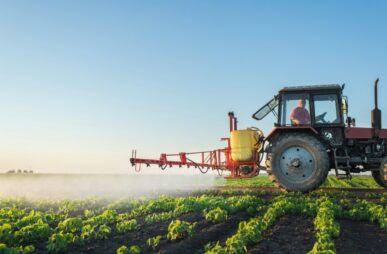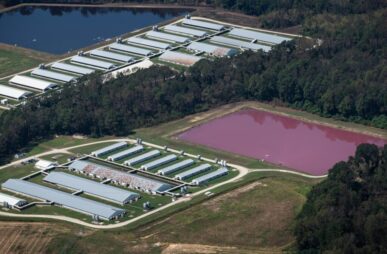Another PFAS-containing pesticide headed for US registration
By Brian Bienkowski
US regulators are poised to approve a pesticide made with a controversial class of toxic chemicals, stoking concerns of new risks for farms across the country.

By Brian Bienkowski
US regulators are poised to approve a pesticide made with a controversial class of toxic chemicals, stoking concerns of new risks for farms across the country.

By Shannon Kelleher
As US lawmakers haggle over the renewal of the massive Farm Bill, which funds programs ranging from food access for low-income families to crop insurance for farmers, one new issue sparking debate is a proposed safety net for farmers whose land has become contaminated with dreaded “forever chemicals.”

By Shannon Kelleher
The US agriculture industry puts food on Americans’ tables, but many of the farming practices used to produce that food are controversial. Critics say large corporate interests dominate agriculture and push policies and practices that endanger human and environmental health and harm the interests of small farmers and rural communities.